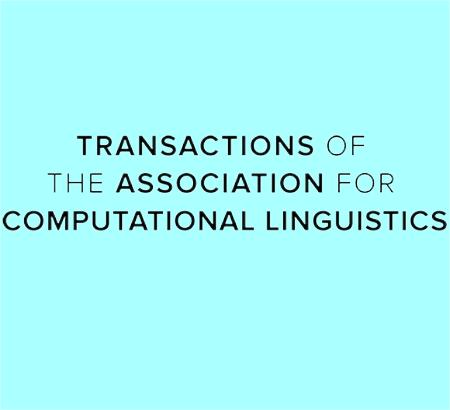作者表征学习能否捕捉文体特征?
IF 4.2
1区 计算机科学
Q2 COMPUTER SCIENCE, ARTIFICIAL INTELLIGENCE
Transactions of the Association for Computational Linguistics
Pub Date : 2023-08-22
DOI:10.1162/tacl_a_00610
引用次数: 0
摘要
摘要 在计算语言学中,自动将作者的风格与其写作内容区分开来是一个长期存在且可能无法解决的问题。与此同时,由于可以获得带有作者标签的大型文本语料库,因此最近能够以纯数据驱动的方式学习作者身份表征,用于作者身份归属,这项任务表面上看更依赖于对写作风格的编码,而不是对内容的编码。然而,这种代用任务的成功并不能确保此类表征能够捕捉到写作风格,因为作者身份还可能与其他潜在变量(如主题)相关。为了更好地理解这些表征所传达信息的性质,特别是验证它们主要编码写作风格的假设,我们通过一系列有针对性的实验对这些表征进行了系统的探究。这些实验的结果表明,在代理作者身份预测任务中学习到的表征确实对写作风格很敏感。因此,作者身份表征有望对某些类型的数据转移(如主题随时间的漂移)具有稳健性。此外,我们的发现可能会为需要风格表征的下游应用(如风格转移)打开大门。本文章由计算机程序翻译,如有差异,请以英文原文为准。
Can Authorship Representation Learning Capture Stylistic Features?
Abstract Automatically disentangling an author’s style from the content of their writing is a longstanding and possibly insurmountable problem in computational linguistics. At the same time, the availability of large text corpora furnished with author labels has recently enabled learning authorship representations in a purely data-driven manner for authorship attribution, a task that ostensibly depends to a greater extent on encoding writing style than encoding content. However, success on this surrogate task does not ensure that such representations capture writing style since authorship could also be correlated with other latent variables, such as topic. In an effort to better understand the nature of the information these representations convey, and specifically to validate the hypothesis that they chiefly encode writing style, we systematically probe these representations through a series of targeted experiments. The results of these experiments suggest that representations learned for the surrogate authorship prediction task are indeed sensitive to writing style. As a consequence, authorship representations may be expected to be robust to certain kinds of data shift, such as topic drift over time. Additionally, our findings may open the door to downstream applications that require stylistic representations, such as style transfer.
求助全文
通过发布文献求助,成功后即可免费获取论文全文。
去求助
来源期刊
CiteScore
32.60
自引率
4.60%
发文量
58
审稿时长
8 weeks
期刊介绍:
The highly regarded quarterly journal Computational Linguistics has a companion journal called Transactions of the Association for Computational Linguistics. This open access journal publishes articles in all areas of natural language processing and is an important resource for academic and industry computational linguists, natural language processing experts, artificial intelligence and machine learning investigators, cognitive scientists, speech specialists, as well as linguists and philosophers. The journal disseminates work of vital relevance to these professionals on an annual basis.

 求助内容:
求助内容: 应助结果提醒方式:
应助结果提醒方式:


